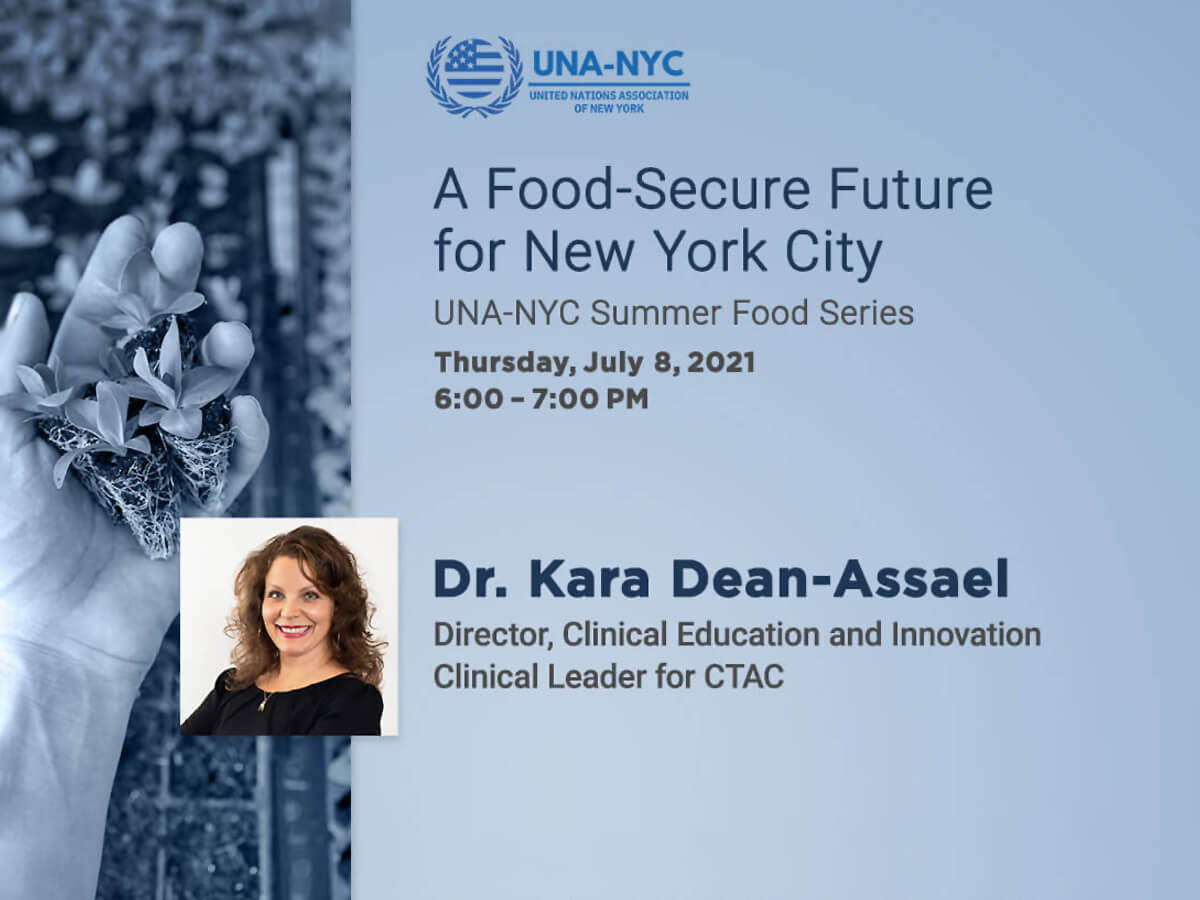NEW YORK, July 12, 2021 — As we look toward a future beyond the pandemic, we must confront the fact that food insecurity in New York remains stubbornly high. The United Nations Association of New York City (UNA-NYC) hosted a virtual panel discussion on July 8 about the wide-ranging effects of hunger in the city, moderated by McSilver Clinical Education and Innovation Department Director and Clinical Leader of CTAC Dr. Kara Dean-Assael.
During “A Food-Secure Future for New York City,” viewers heard from Rep. Adriano Espaillat (New York-13th); Florence French Fagan, Regional Organizer of Bread for the World; and Zanita Tisdale, Senior Director of Member Engagement for the Food Bank For New York City; as well as UNA-NYC executive director Ann Nicol and fellow Julie Negussie.
Press the play icon, then type ‘F’ for fullscreen viewing
Of the pandemic, Dr. Dean-Assael noted, “This collective traumatic experience has brought to light so many of our social problems, including hunger. However, we also know that hunger existed before the pandemic, as did disparities in the social determinants of health, which we can also think of as structural racism.”
The overall rate of adult New Yorkers reporting that there sometimes or often wasn’t enough food to eat dropped 2 percentage points between December 2020 and March 2021, according to the New York State Health Foundation. Yet, as of March 29 percent of Hispanic New Yorkers and 20 percent Black New Yorkers reported household food scarcity within the last 7 days— These percentages were approximately 4 to 6 times higher than among white New Yorkers.
“Some folks were surprised to see the the lines around the block and in urban communities [at food banks] in New York City. but the fact is that hunger has been there all along and the pandemic has found its way to make it more visible for everybody to see. And so, we must have a strategic plan on how to address this,” said Rep. Espaillat.
Citing recent increases in Supplemental Nutrition Assistance Program (SNAP) and Special Supplemental Nutrition Program for Women, Infants, and Children (WIC) benefits, the congress member said solutions must also address access to healthy food within urban communities. ” I think that we must connect for example, bodegas with farmers and green markets to address the food deserts that we have in East Harlem, for example.” (New York City does have a Green Market program that allows shoppers to buy from farmer’s markets using SNAP benefits.) He said he also supports efforts to bolster urban agriculture.
Dr. Dean-Assael also mentioned the McSilver Institute’s development of the Family and Food Matters program curricula for decreasing food insecurity in caregivers with kids and pregnant women in New York City, while increasing the ability to address the well-being of the family units and pregnant women. She is also the co-founder of Fareground, Inc., a non-profit that focuses on food justice in Dutchess County, NY.
Hear more of the UNA NYC-hosted conversation in the video above.

